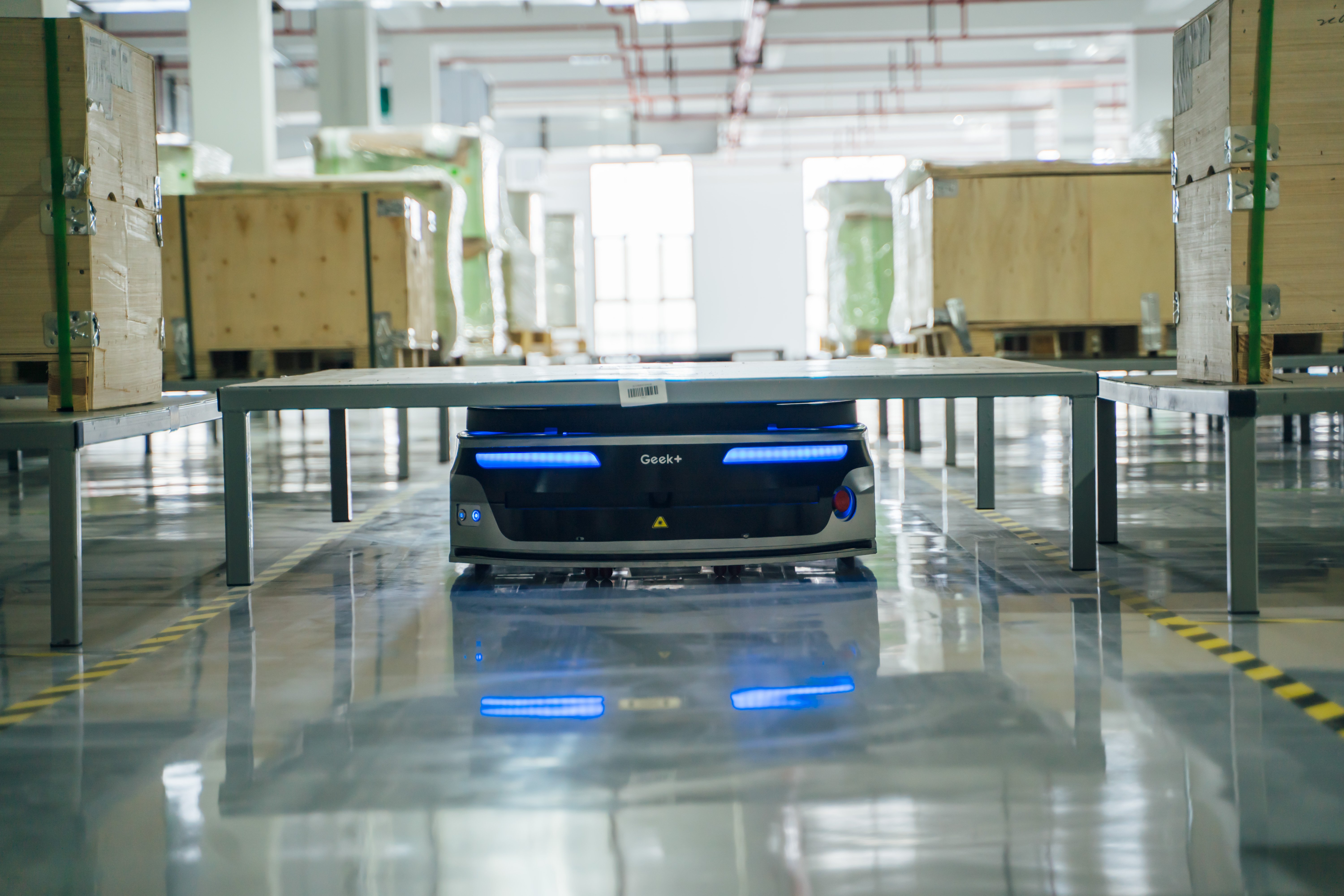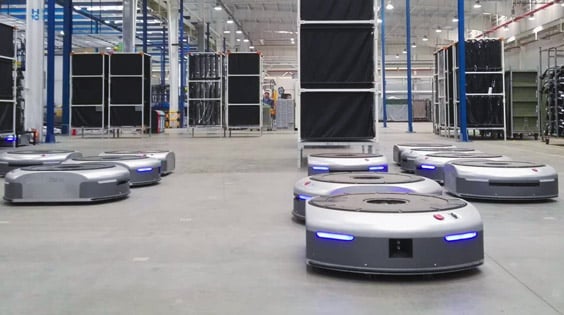Benefits of Smart Factory 4.0
It is indisputable that the role of technology is burgeoning day by day and is significantly revolutionizing the way products are being manufactured and how businesses are operating. In fact, this transition is so riveting that it has been termed Industry 4.0. In our previous article, we decoded this growing trend but what are the advantages of transitioning to Smart Factory 4.0?
Flexible Infrastructure
With smart factory, traditional fixed infrastructure such as conveyor belt assembly lines can be obliterated. Instead, autonomous mobile robots (AMRs) can be deployed to realize smart material handling. Robots can cleverly manage and move logistics around a manufacturing facility and even be scheduled to deliver materials to various workstations on time to maximize the productivity of each piece of equipment in the production line.

In fact, manufacturers have found that the introduction of AMRs reduces delays by 80 per cent and accelerates material delivery by 3 times. From the business perspective, permanently fixed equipment installations and successive hefty investments can be avoided whilst keeping workplace accidents and inevitable human errors to a minimum. Moreover, since operations are automated, factory workers can be redirected from sheer manual labour to more value-adding tasks.
Adaptive Operations
With robots, factories no longer have to be restricted by linear, sequential production processes. Rather, the order in which tasks are undertaken and completed can become more flexible and tailored to current business needs so as to avoid bottlenecks and ensure the highest level of operational efficiency in the factory. This flexibility in operations also allows manufacturers to execute mass customization, also known as “batch of one”.
This way, products can be tailored to each and every customer’s specific requirements, no matter how much individualization is required, allowing businesses to be more responsive towards consumer demands.
Interconnected Supply Network
The lines between physical and digital worlds are blurred as software, hardware and even humans are integrated together in Smart Factory 4.0. The result is an optimized supply chain which can adapt proactively and adjust manufacturing priorities when new information is presented. Such smart, interconnected monitoring and practices can revitalize communication and boost overall efficiency and effectiveness of manufacturing processes.

Long-term Productivity and Profits
Overall, Smart Factory 4.0 can expedite business value creation and help corporations attain long term increase in productivity and thereby, profits. According to a report by Deloitte and the Manufacturers Alliance for Productivity and Innovation (MAPI), implementing smart factory initiatives has enabled factories to make gains of up to 12 per cent.
Gains in this case refer to manufacturing output, an important US economic indicator, as well as factory utilization and labour productivity. Early adopters of smart factory technologies have also reaped the fruits of their investment – doubling in the level of labour productivity. This is significant in light of the current climate, where there is little or no increase in labour productivity in America over the past six or seven years, according to research conducted by Deloitte.
Case Studies
Some corporations have taken the leap and have successfully made the transition into smart manufacturing. For instance, Yanfeng, an automotive manufacturer, has working with Geek+ in introducing smart factory initiatives. 18 P800 picking robots were deployed for picking and handling, and an inventory process management system was developed. The result was evident - average production tempo is increased to 60S and an efficient, timely management of production flow is achieved.

INLAYLINK, one of the world-renowned manufacturers of RFID tag antennas, has also successfully realised a smart factory upgrade. Previously, the company has faced several manufacturing challenges such as labour-intensive manual handling, high management cost and general low efficiency whilst trying to cope with frequent movement of on-site materials. After seeking solutions from Geek+, the site is equipped with 12 M1000 robots to enable smart material handling and realize accomplish automatic, accurate, and timely distribution of materials across floors and sectors. Geek+ Moving System (GMS) is also implemented and connected to WMS and MES, enabling real-time visibility of the manufacturing process. Overall, labour-intensive processes are ameliorated and material handling efficiency increased by 30%. The integration information also reduced in material management costs by 60%.
.jpeg?width=5375&name=0-60%20(1).jpeg)
Despite the bountiful benefits of Smart Factory 4.0, adoption rates are low due to inaction on the part of corporations. In fact, according to a survey conducted by Deloitte and MAPI, 19 per cent of respondents have not considered smart factory transformation, and 30 per cent are contemplating but not planning any initiatives. In view of the rapid pace of technological developments, it is imperative for businesses who are looking to capitalize on smart manufacturing as a key competitive advantage to strike while the iron is hot.
Has your business caught up with Smart Factory 4.0? If yes, that is great! If no, it is time to move forward and find out more about automated solutions that can be best catered to your business needs. Schedule a chat with one of our Geek+ consultants today!
To learn more about Smart Factory 4.0, download our white paper:




.png?width=500&name=G2P%20(3).png)